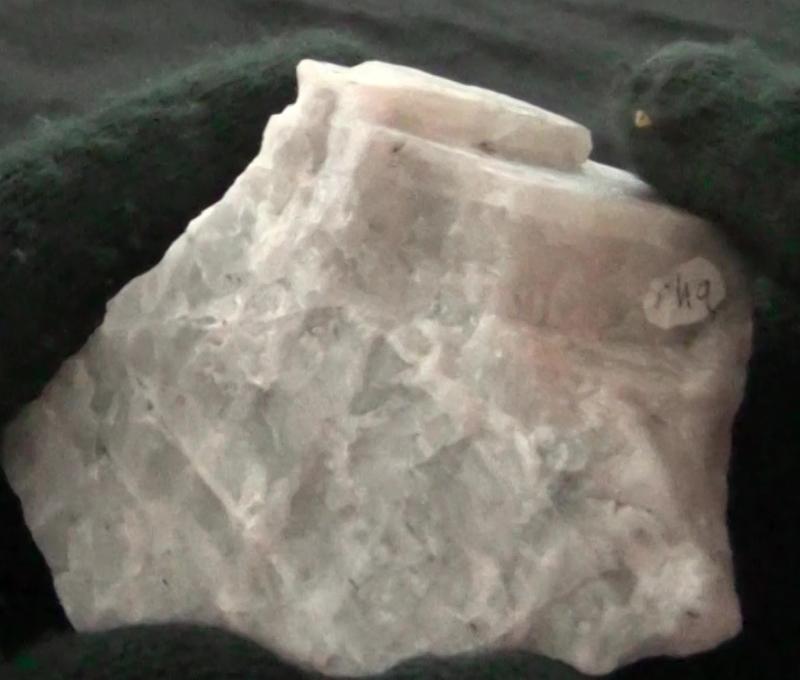Mineral Identification Test (Part 1)
Earth Science Extras
by Russ Colson
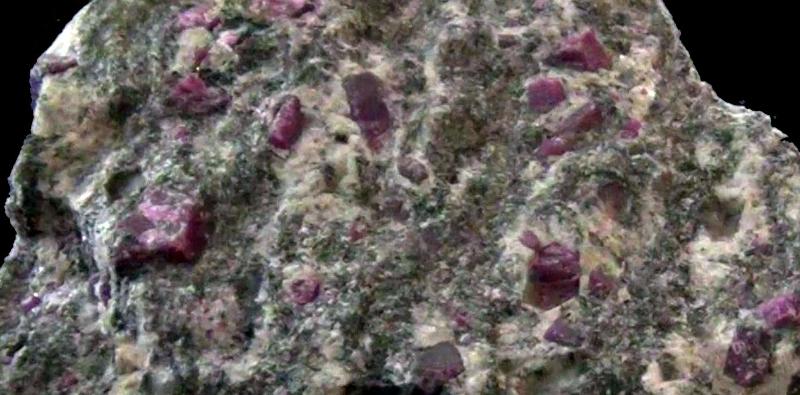
Metamorphic rock containing a red mineral that you will identify in this test. Do you notice the lack of cleavage (fracture)? The hexagonal cross section? The prismatic shape? And that color! Are you already forming possibilities in your mind?
So you think you know minerals?
Have you looked at lots of minerals to grow familiar with their appearance and characteristics? Have you learned their observable properties like hardness, cleavage, streak, luster, typical growth habits and common associations of rock type and other minerals?
Then test yourself with the challenges below! Each sample includes a short video in which you can make a number of observations that can help you identify the mineral. The videos are 50-200 MB each, so you will need a fast internet connection. The minerals are somewhat arbitrarily grouped into categories: Whitish Minerals, Blackish Minerals, Brownish Minerals, Shiny Minerals, Clearish Minerals, Reddish Minerals, Other Minerals, and Minerals in Rock Assemblage.
Out of the over 3000 minerals that have been identified and described, we are going to consider only the following list of 60 minerals. Not all of these minerals are represented in this test, and some minerals may appear in the test more than once.
Oxides (and hydroxides):
Cuprite, corundum, hematite, ilmenite, chromite, cassiterite, magnetite, bauxite
Sulfides:
Bornite, galena, sphalerite, covellite, cinnabar, stibnite, arsenopyrite, pyrrhotite, chalcopyrite, pyrite, chalcocite
Sulfates:
Barite, gypsum, anhydrite
Carbonates:
Calcite, siderite, magnesite, dolomite, malachite, azurite
Halides:
halite, fluorite
Phosphates:
apatite, turquoise
Silicates:
nesosilicates: olivine, garnet, andalucite, silliminite, kyanite, staurolite
sorosilicates: epidote
cyclosilicates: beryl, tourmaline
inosilicates: wollastonite, diopside (a pyroxene), augite (a pyroxene), enstatite (a pyroxene), hornblende (a common amphibole)
phyllosilicates: biotite (a mica), phlogopite (a mica), muscovite (a mica), chlorite, lepidolite, talc, kaolinite, serpentine
tectosilicates: quartz, Orthoclase (a feldspar), plagioclase (a feldspar), leucite, nepheline, sodalite
You might want to print out the list above as a handy guide while you try to identify the minerals. The test includes 50 different mineral samples and each video takes around a minute to run. If you are familiar with minerals and their properties already then this test should take you 2-3 hours. The test is broken into three parts. This first part consists of three pages (Whitish Group, Blackish Group, and Brownish Group) with 16 mineral samples.
Have Fun!
The Whitish Group
Mineral 1 (1)
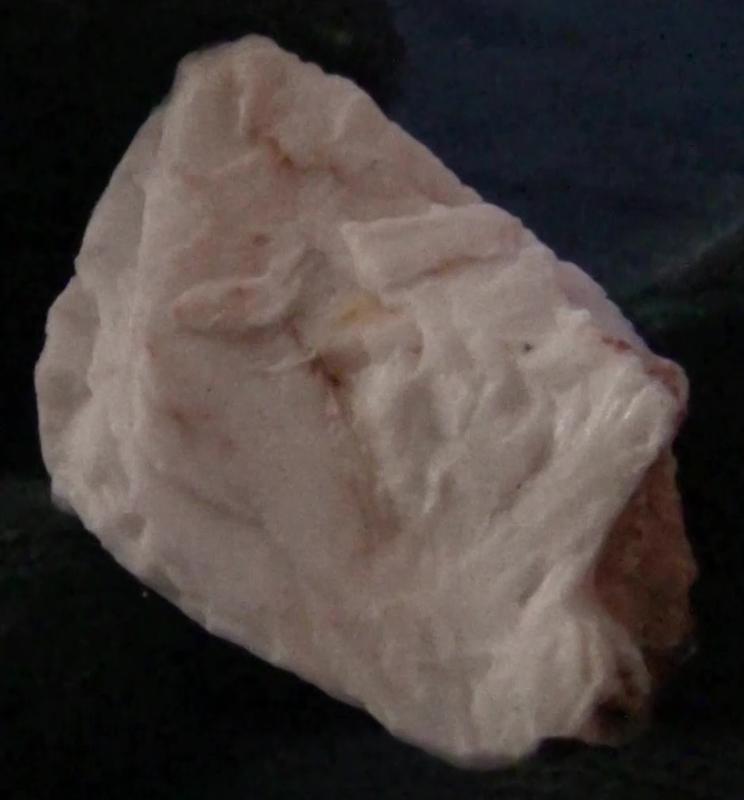
Click Video to get observational data
You need to answer each of the following three questions--two will be answered with "none of these" and one will be answered with the correct mineral name.
Mineral 2 (5)
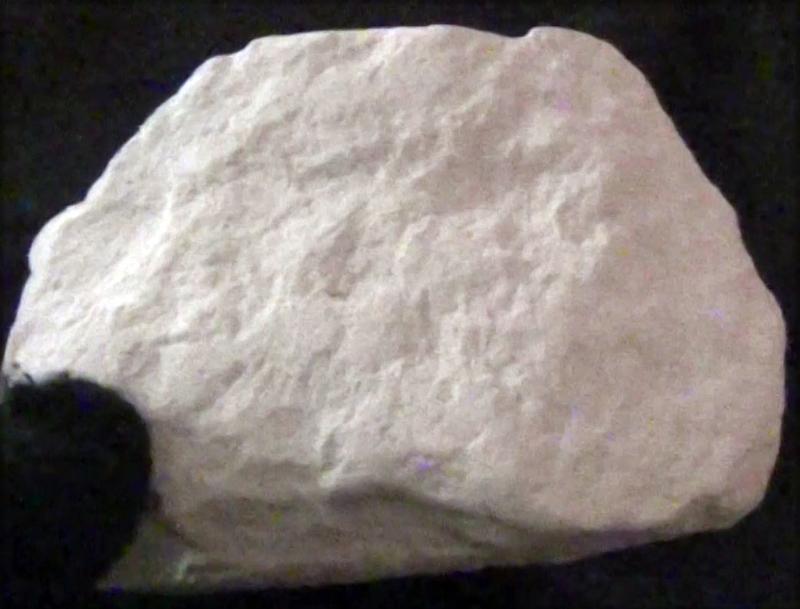
Click Video to get observational data
You need to answer each of the following three questions--two will be answered with "none of these" and one will be answered with the correct mineral name.
Mineral 3 (30)
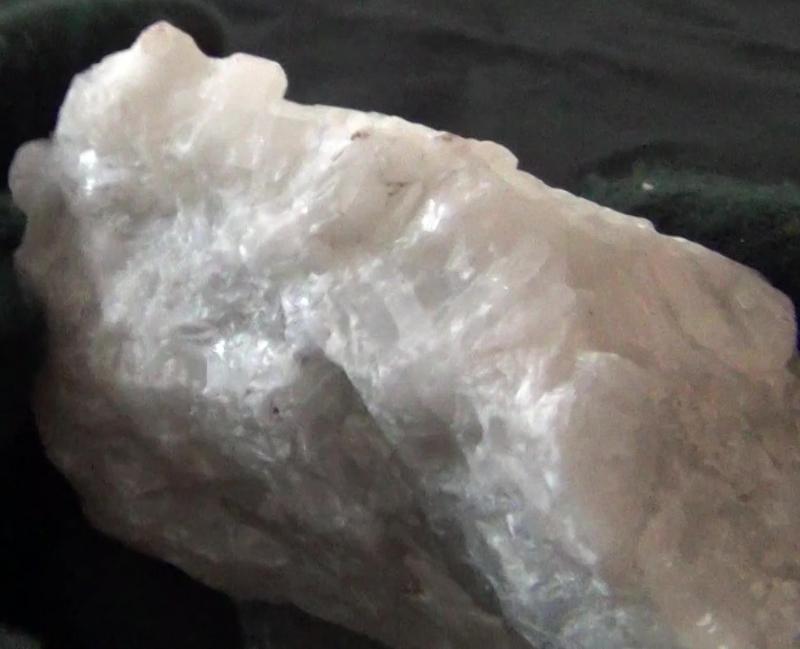
Click Video to get observational data
You need to answer each of the following three questions--two will be answered with "none of these" and one will be answered with the correct mineral name.
Mineral 4 (36)
Click Video to get observational data
You need to answer each of the following three questions--two will be answered with "none of these" and one will be answered with the correct mineral name.
Mineral 5 (38)
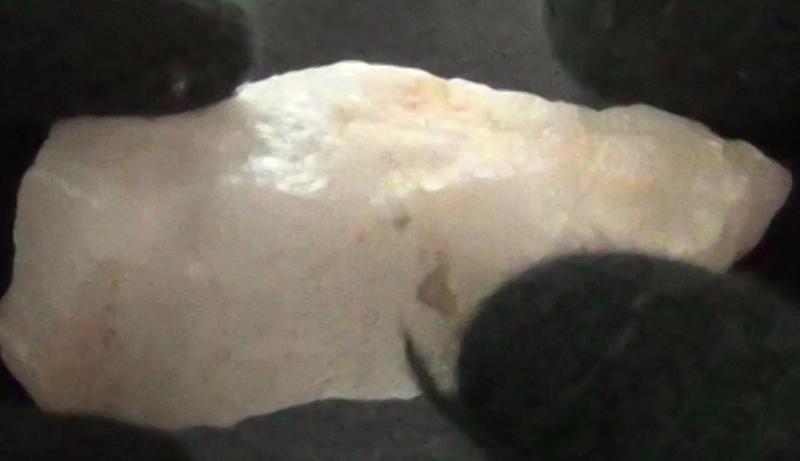
Click Video to get observational data
You need to answer each of the following three questions--two will be answered with "none of these" and one will be answered with the correct mineral name.
Mineral 6 (40)
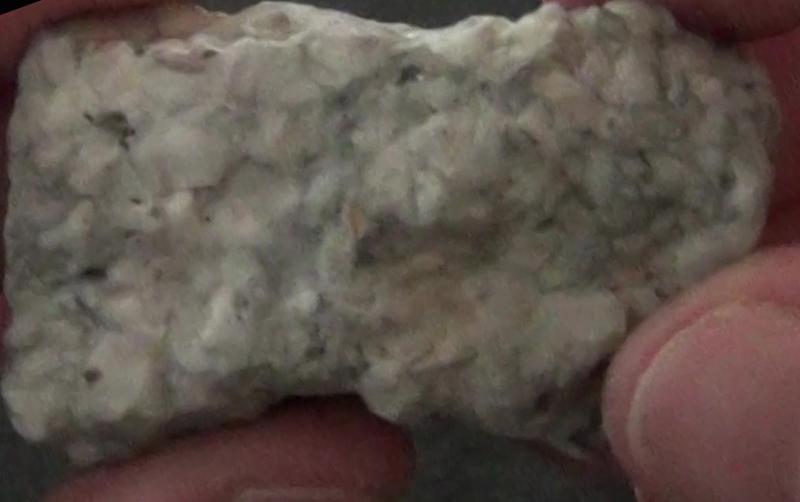
Click Video to get observational data
You need to answer each of the following three questions--two will be answered with "none of these" and one will be answered with the correct mineral name.
Mineral 7 (43)
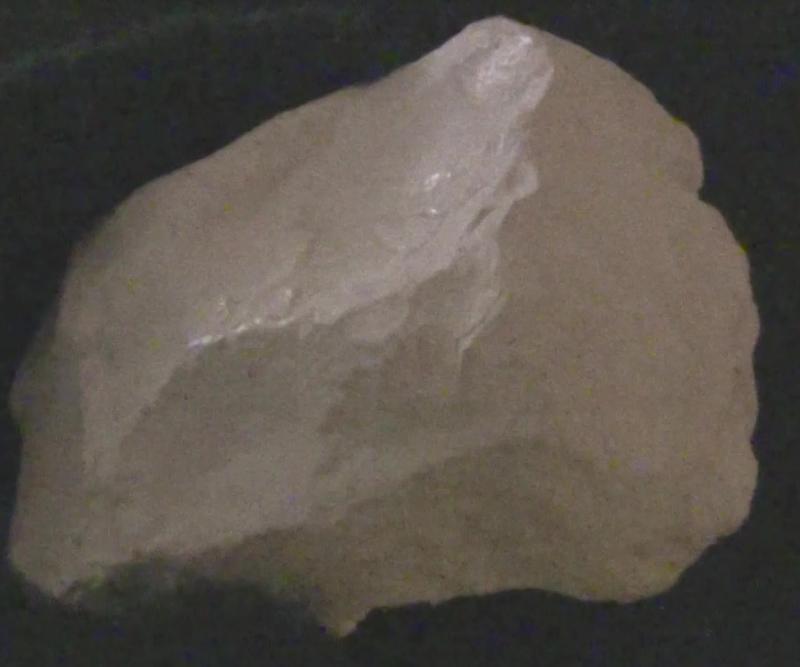
Click Video to get observational data
You need to answer each of the following three questions--two will be answered with "none of these" and one will be answered with the correct mineral name.
Continue with the Blackish Group on the Next Page
All images and videos property of Russ Colson
